Coronavirus: Overseas travel won’t be back to normal until 2023
Experts predict Australians will have to wait years for overseas travel as the Prime Minister says Australia will always stand its ground, even if it comes at the cost of trade relations with China.
Coronavirus
Don't miss out on the headlines from Coronavirus. Followed categories will be added to My News.
Aussies ‘will have to wait years’ for overseas travel
US accuses China of trying to steal COVID-19 vaccine research
Canadian zoo sends pandas home due to bamboo shortage
LA mayor says California may ‘never be completely open’
The Prime Minister has declared Australia will always stand its ground, even if it comes at the cost of trade relations with China.
Scott Morrison has been accused of playing “deputy sheriff” to the United States after calling for a global inquiry into the origins of COVID-19. But he has brushed off the criticism.
“We have always been independent, we have always pursued our national interests, and we always will,” Mr Morrison told reporters in Canberra today.
“We will always be Australians in how we engage with the rest of the world, and we will always stand our ground when it comes to the things that we believe in and the values that we uphold.”
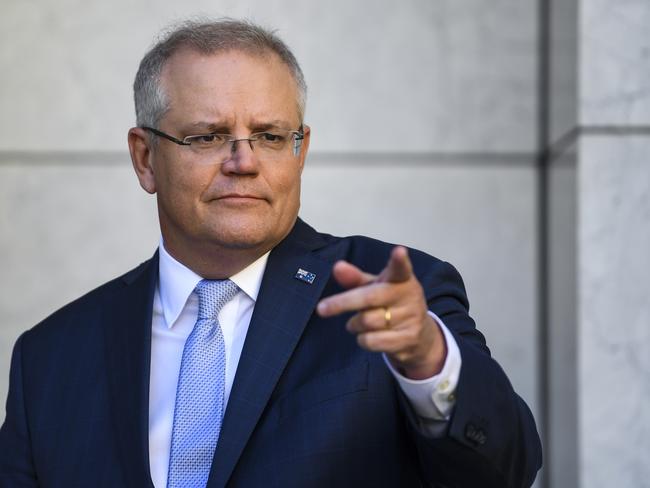
Peter Dutton has declared Australia will continue pushing for the independent inquiry, despite straining relations with China.
Beijing has suspended beef imports from four abattoirs and plans to slap huge tariffs on Australian barley, after warning the inquiry could destroy two-way trade ties.
The home affairs minister has consistently argued families of coronavirus victims have legitimate questions that need to be answered in a transparent way. “Australia’s done nothing more than stand up for our values and we will consistently do that,” Mr Dutton said.
Labor supports the government’s calls for a coronavirus inquiry but has criticised its messaging on China-Australia relations.
Opposition foreign affairs spokeswoman Penny Wong says the prime minister should lead the debate and be more clear and consistent.
“I think it is regrettable that much of this debate is being framed and led by conservative backbenchers, trying to outdo each other as to who can be more strident on China,” she told ABC radio.
“I don’t think that serves the national interest.” Senator Wong believes the inflammatory comments have been squarely aimed at a domestic audience.
“We need to think less about domestic political interest from the prime minister down. We need to be focusing on the national interest.”
AUSSIES FACE OVERSEAS TRAVEL DELAY
Australians will have to wait years for overseas travel to return to normal, with an industry authority revealing that won’t be until 2023.
International Air Transport Association chief executive Alexandre de Juniac revealed overseas travel would resume “later” than previously thought.
“We have published today a new forecast about the potential recovery of the air traffic, and what we see is that things should come back to normal in 2023, which is later than our previous forecast,” Mr de Juniac told ABC News Breakfast.
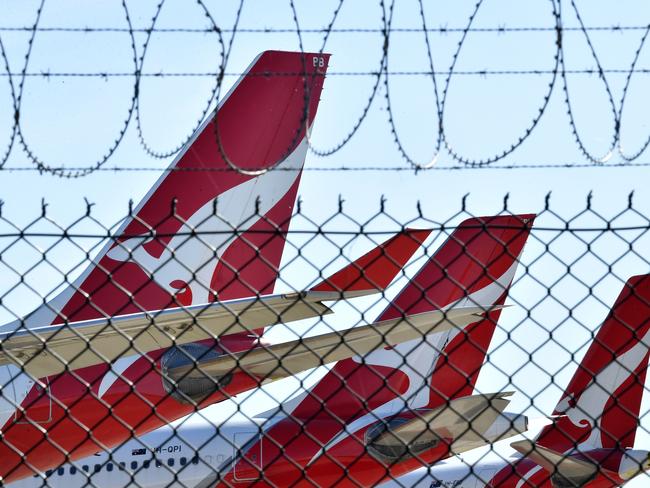
MORE NEWS
Feuding royals are ‘back in touch’
$25 isolation product that’s selling out
Bizarre outfit people are wearing in lockdown
Sexy new isolation photo trend that’s taking off
“That shows, you know, the importance and the severity of this crisis on air transport …. We should join progressively the historical trends by the beginning of 2023.
“What we have planned is to restart the industry, first by reopening domestic markets, then regional continental markets, such as Asia-Pacific, or Europe, or North America.
“At the end of 2020, the traffic should be between 50 to 55 per cent of the same level that was in place in 2019.
“So, we would lose something like half the traffic for .... 2020.”
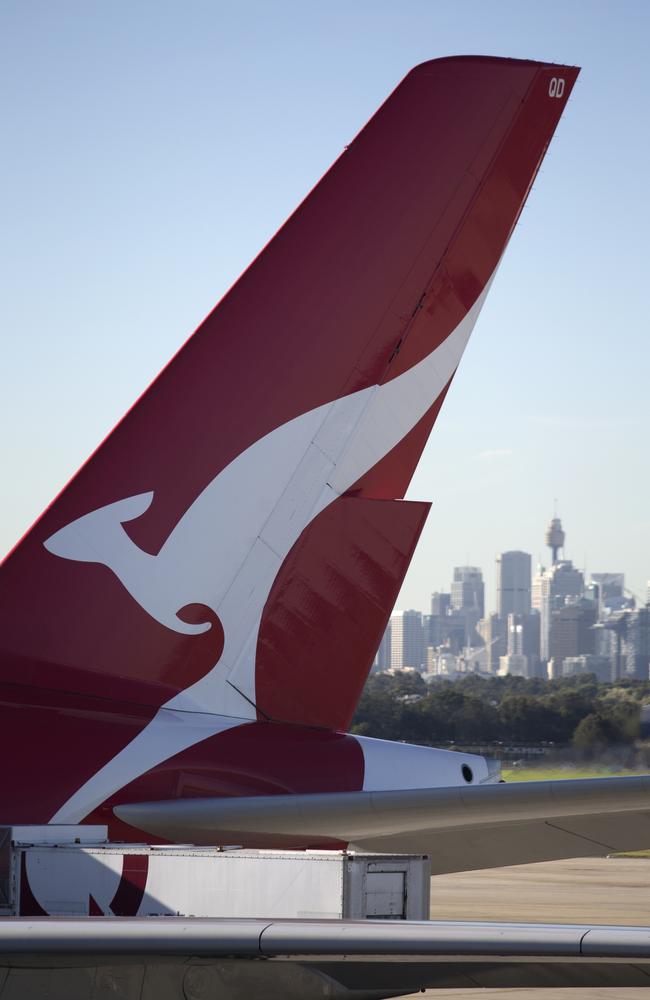
His comments came a day after the country’s top doctor said Australia has “no clear road map” to reopening international travel, with closed borders “integral” to containing COVID-19.
“I can’t see, I have no vision at the moment on the current international scene where international border measures of some very strong vigour won’t be necessary,” chief medical officer Professor Brendan Murphy said yesterday.
“There is no clear road map out of this. Local border restrictions are less important than international travellers, particularly from Europe and the UK, where there are widespread cases.”
CHINA TRYING TO ‘STEAL CURE’
US authorities warned healthcare and scientific researchers have claimed that Chinese-backed hackers were attempting to steal research and intellectual property related to treatments and vaccines for COVID-19.
Organisations researching the disease were warned of “likely targeting and network compromise by the People’s Republic of China,” a statement from the FBI and the Cybersecurity and Infrastructure Security Agency said on Wednesday (local time).
“These actors have been observed attempting to identify and illicitly obtain valuable intellectual property and public health data related to vaccines, treatments, and testing from networks and personnel affiliated with COVID-19-related research,” they said.
“China’s efforts to target these sectors pose a significant threat to our nations response to COVID-19,” they said.
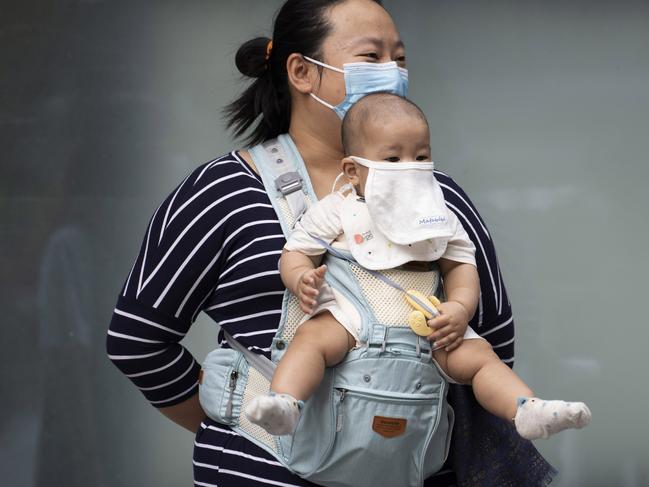
The two organisations gave no evidence or examples of their allegation against Beijing.
But they urged “all organisations conducting research in these areas to maintain dedicated cybersecurity and insider threat practices to prevent surreptitious review or theft of COVID-19-related material.”
On Monday US media reported that the FBI was poised to release the warning about vaccine-research hacking.
Asked about the coming report, US President Donald Trump replied: “What else is new with China? What else is new? Tell me. I’m not happy with China.”
“We’re watching it very closely,” he added.
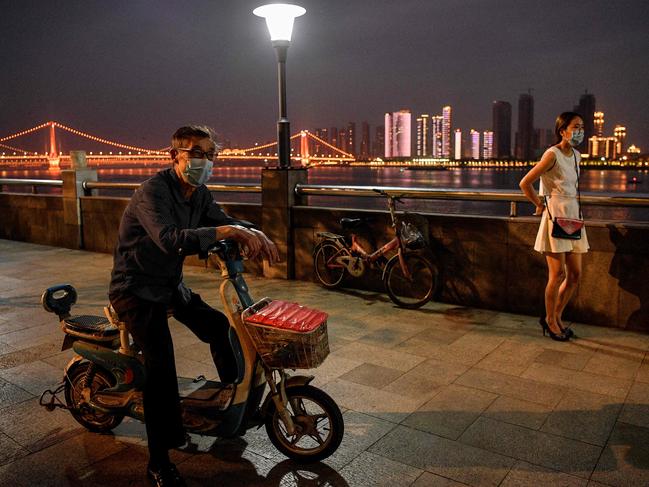
In Beijing on Monday, Foreign Affairs ministry spokesman Zhao Lijian rejected the allegation, saying China firmly opposes all cyberattacks.
“We are leading the world in COVID-19 treatment and vaccine research. It is immoral to target China with rumours and slanders in the absence of any evidence,” Zhao said.
The warning comes as dozens of companies, institutes and countries around the world are racing to develop vaccines to halt the spread of the coronavirus, which has killed at least 292,000 worldwide.
Many more groups are researching treatments for infected patients. Currently there is no proven treatment.
The warning adds to a series of alerts and reports accusing government-backed hackers in Iran, North Korea, Russia and China of malicious activity related to the coronavirus pandemic, from pumping out false news to targeting workers and scientists.
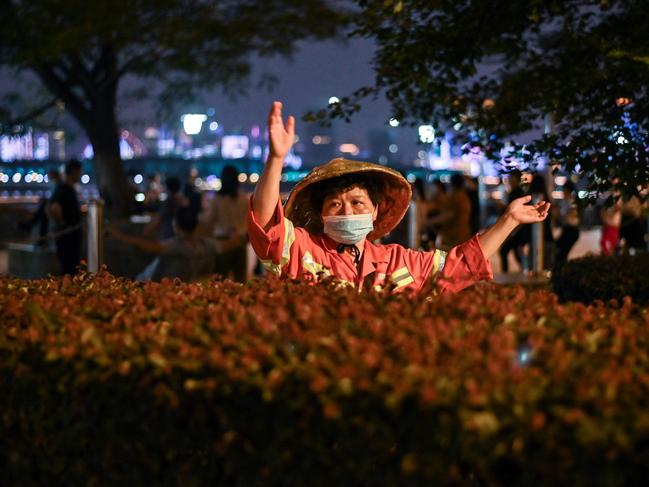
Last week in a joint message Britain and the United States warned of a rise in cyber attacks against health professionals involved in the coronavirus response by organised criminals “often linked with other state actors.”
Britain’s National Cyber Security Centre and the US Cybersecurity and Infrastructure Security Agency said they had detected large-scale “password spraying” tactics — hackers trying to access accounts through commonly used passwords — aimed at healthcare bodies and medical research organisations.
Reporting the expected FBI warning on Monday, The New York Times said it could be a prelude to officially sanctioned counter-attacks by US agencies involved in cyber warfare, including the Pentagon’s Cyber Command and the National Security Agency.
US FACES ‘DARKEST WINTER’
America faces the “darkest winter in modern history” unless leaders act decisively to prevent a rebound of the coronavirus, says a government whistleblower who alleges he was ousted from his job for warning the White House to prepare for the pandemic.
Immunologist Dr Rick Bright makes his prediction in testimony prepared for his appearance before the House Energy and Commerce Committee.
A federal watchdog agency has found “reasonable grounds” that Dr Bright was removed from his post as head of the Biomedical Advanced Research and Development Authority for sounding the alarm at the Department of Health and Human Services.
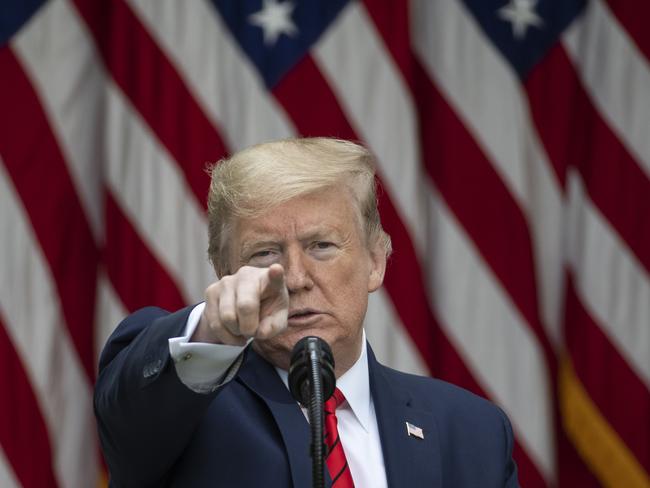
“Our window of opportunity is closing,” Dr Bright says in his prepared testimony posted on the House committee website.
“If we fail to develop a national co-ordinated response, based in science, I fear the pandemic will get far worse and be prolonged, causing unprecedented illness and fatalities.”
His testimony follows this week’s warning by Dr Anthony Fauci, the government’s top infectious disease expert, that a rushed lifting of store-closing and stay-at-home restrictions could “turn back the clock,” seeding more suffering and death and complicating efforts to get the economy rolling again.
President Donald Trump has dismissed Dr Bright as “a disgruntled guy.”
Dr Bright said: “The undeniable fact is there will be a resurgence of (COVID-19) this fall, greatly compounding the challenges of seasonal influenza and putting an unprecedented strain on our health care system.
“Without clear planning and implementation of the steps that I and other experts have outlined, 2020 will be darkest winter in modern history,” he wrote.
As part of his whistleblower complaint, Bright is seeking to be reinstated in his old job.
ZOO RETURNS PANDAS TO CHINA
Meanwhile, a Canadian zoo is shipping two pandas home to China after the coronavirus pandemic left it struggling to source the massive bamboo stockpiles needed to feed the giant creatures.
Er Shun and her mate Da Mao have lived in the country since 2013 as part of a 10-year loan agreement with a breeding facility in Chengdu.
The arrival of the cute and furry animals was a huge spectacle that was broadcast live on all major Canadian television networks.
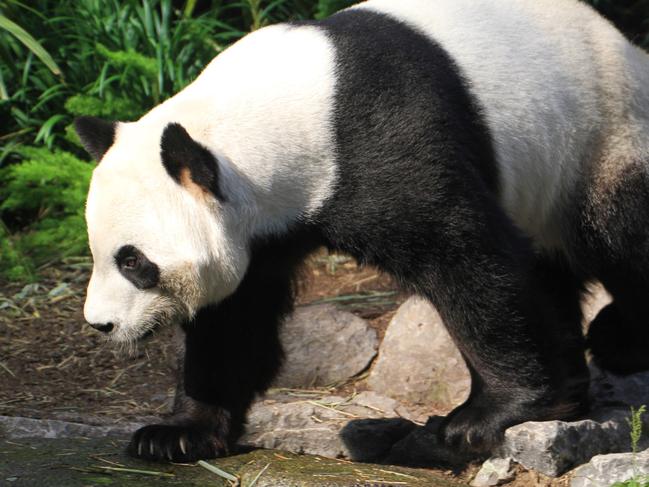
Er Shun later mothered two twin cubs — the first pandas born on Canadian soil. But Calgary Zoo said it was cutting short the pair’s stay because the COVID-19 outbreak had disrupted transport links and made it harder to supply the 40 kilograms of bamboo a typical adult panda eats each day.
Staff had worked to find alternative bamboo providers but there were concerns that supplies could be disrupted without warning and leave the animals hungry, the zoo said in a statement.
“Knowing a second wave of COVID-19 is likely … the Calgary Zoo feels it’s critical to move the beloved giant pandas back to China where there are abundant local sources of bamboo,” the statement said.
The zoo is currently closed due to the pandemic and said it would not be able to allow the public to bid farewell to the animals.
Er Shun and Da Mao’s cubs have already been relocated to China, according to national broadcaster CBC.
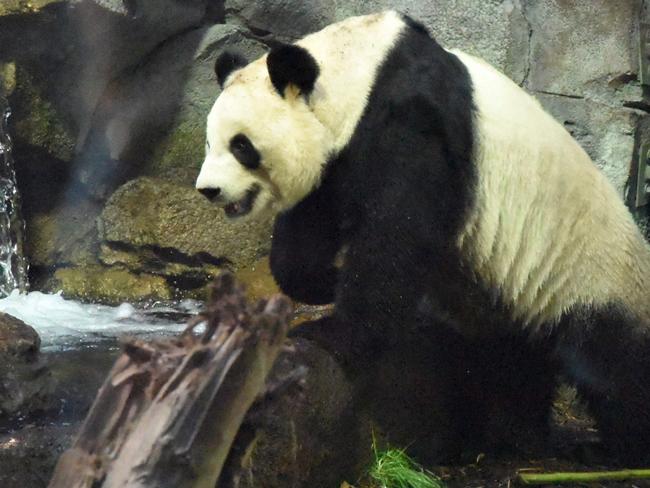
FORMER TRUMP AIDE RELEASED FROM PRISON
Meanwhile, Paul Manafort, Donald Trump’s one-time presidential campaign chairman who was convicted as part of the special counsel’s Russia investigation, has been released from federal prison to serve the rest of his sentence in home confinement due to concerns about the coronavirus, his lawyer said Wednesday.
Manafort, 71, was released on Wednesday morning (local time) from FCI Loretto, a low-security prison in Pennsylvania, according to his lawyer, Todd Blanche.
Manafort had been serving more than seven years in prison following his conviction. His lawyers had asked the Bureau of Prisons to release him to home confinement, arguing that he was at high risk for coronavirus because of his age and pre-existing medical conditions. Manafort was hospitalised in December with a heart-related condition, two people familiar with the matter told reporters at the time.
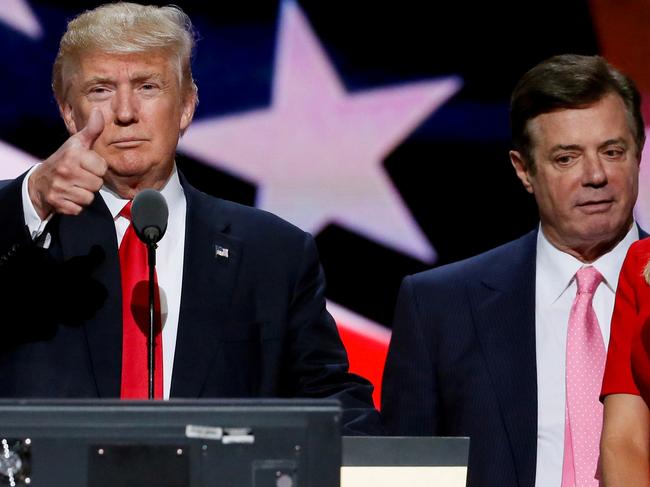
Manafort was among the first people to be charged in special counsel Robert Mueller’s Russia investigation, which examined possible co-ordination between the Trump campaign and Russia in the 2016 election campaign.
Manafort, who was prosecuted in two federal courts, was convicted by a jury in federal court in Virginia in 2018 and later pleaded guilty in Washington. He was sentenced last March and was immediately hit with state charges in New York after prosecutors accused him of giving false information on a mortgage loan application. A New York judge threw out state mortgage fraud charges, ruling that the criminal case was too similar to one that already landed Manafort in prison. Prosecutors have pledged to appeal.
Manafort’s release comes as prison advocates and congressional leaders have been pressing the Justice Department for weeks to release at-risk inmates before a potential outbreak in the system. They argue that the public health guidance to stay 1.8 metres away from other people is nearly impossible behind bars.
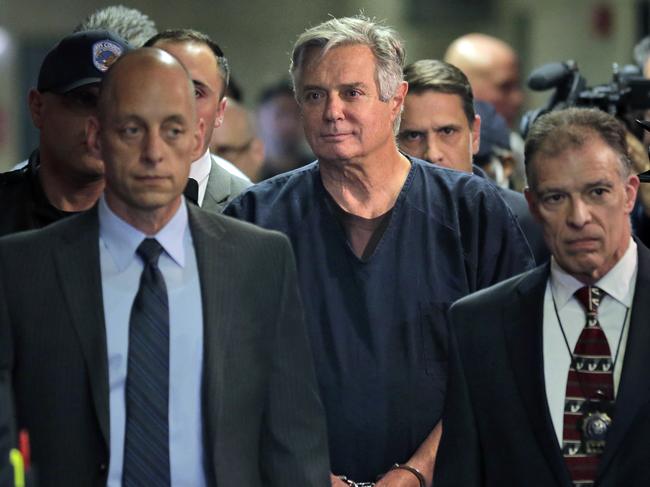
US Attorney-General William Barr ordered the agency in March and April to increase the use of home confinement and expedite the release of eligible high-risk inmates, beginning at three prisons identified as coronavirus hot spots. There are no confirmed coronavirus cases at FCI Loretto.
As of Tuesday, 2818 US federal inmates and 262 staff members had positive test results for COVID-19 at federal prisons across the country. Fifty inmates had died.
The bureau has given contradictory and confusing guidance how it is deciding who is released to home confinement in an effort to combat the virus, changing requirements, setting up inmates for release and backing off and refusing to explain how it decides who gets out and when.
Under the bureau’s guidelines, priority is supposed to be given to those inmates who have served half of their sentence or inmates with 18 months or less left and who served at least 25 per cent of their time. The bureau has discretion about who can be released.
Manafort, who was jailed in June 2018, does not meet those qualifications, and the bureau did not answer questions about why Manafort was being released. Other high-profile inmates such as Mr Trump’s former personal lawyer Michael Cohen and lawyer Michael Avenatti, who rose to fame representing porn star Stormy Daniels in lawsuits against Mr Trump, have been released.
An agency spokeswoman said more than 2400 inmates have been moved to home confinement since March 26, when Mr Barr first issued a home confinement memo, and more than 1,200 others have been approved and are in the pipeline to be released. But prisons officials will not give out any demographic information. Kathy Hawk Sawyer, a senior adviser at the Bureau of Prisons who formerly led the agency, said in an interview in late April that to “suggest that we are only identifying high profile white collar inmates for home confinement, is absurd.” Manafort’s release was first reported by ABC News.
LOS ANGELES MAY ‘NEVER BE FULLY OPEN’
Los Angeles Mayor Eric Garcetti has warned that the city will “never be fully open” until there is a coronavirus cure.
The mayor made the shocking announcement a day after it was revealed the Californian city will extend its stay-at-home order. During a TV interview, Mr Garcetti said: “I think we have to all recognise that we’re not moving beyond COVID-19”.
“We’re learning to live with it.”
Mr Garcetti added: “It’s important to take this serious because [the virus] is as dangerous today as it was the first day that it arrived in our cities and our country”.
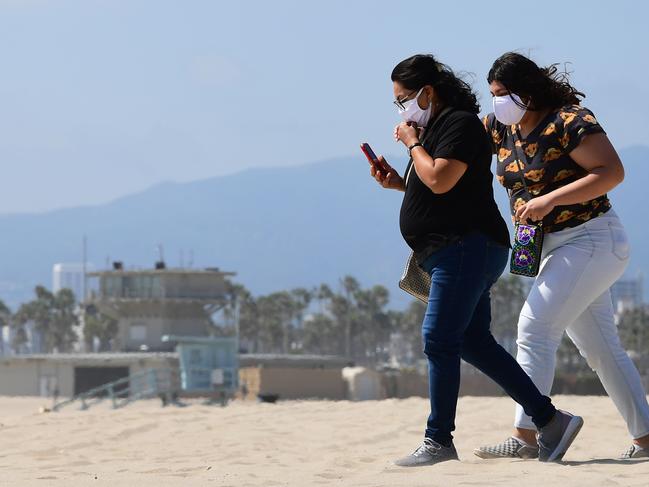
“So, quite frankly, there’s no so-called ‘open state’ or ‘open country’ that doesn’t continue to have health orders telling us to cover our faces, physically distance and to tell people that you’re safest working from and staying at home.
“That’s all that the county health director was saying, and we can’t expect that to disappear in a matter of weeks or even a few months.”
The mayor then went on to say “we will never be completely open until we have a cure.”
His comments came just one day after Los Angeles announced it will extend its stay-at-home order for another three months as coronavirus cases continue to rise across the city.
On Tuesday, County Public Health Director Barbara Ferrer acknowledged the extension during a Board of Supervisors meeting on Tuesday, according to the Los Angeles Times.
Last week, the county loosened some stay-at-home rules – but Ms Ferrer said that restrictions will stay tight for a while.
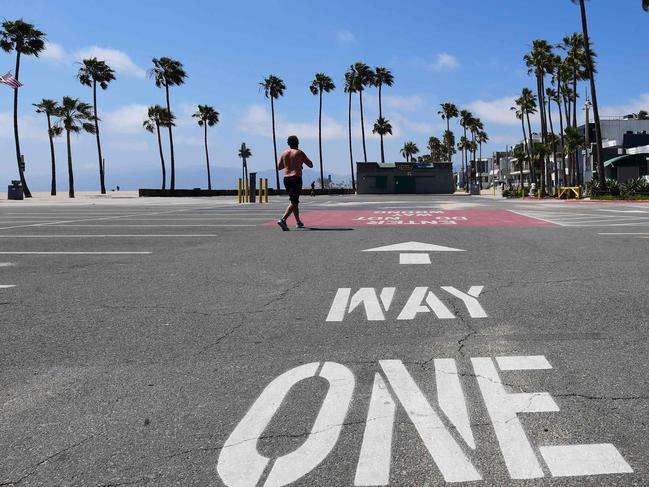
“Our hope is that by using the data, we’d be able to slowly lift restrictions over the next three months,” she told the Los Angeles Times.
Ms Ferrer also said her there is no way to open earlier “unless there’s a dramatic change in this virus and the tools that we have on hand to actually fight against this virus.”
However, the health expert did say that some individual restrictions will be “gradually relaxed” under the county’s five-step coronavirus plan.
Other officials echoed this sentiment, including LA County Supervisor Kathryn Barger who, according to the Times, said: “I am eager to reopen more of L.A. County as soon as it’s safe to do so.
“I’m confident that the more our communities continue to comply, the sooner we can resume normalcy.”
The California coronavirus death toll currently stands at 2778, with at least 1600 of those deriving from Los Angeles alone.
WUHAN TO TEST 11 MILLION RESIDENTS
Authorities in the Chinese city where the coronavirus pandemic first broke out are planning to test all 11 million residents in the next 10 days, local media have reported.
No official announcement has been made, but district officials in Wuhan confirmed receiving orders from the city’s coronavirus taskforce, the reports say.
The order came after the discovery last weekend of a cluster of six infected people at a residential compound in the city, the first new cases in more than a month.
China has moved quickly to snuff out new outbreaks wherever they pop up, even as it relaxes restrictions on the movement of people and reopens public attractions to limited numbers of visitors.
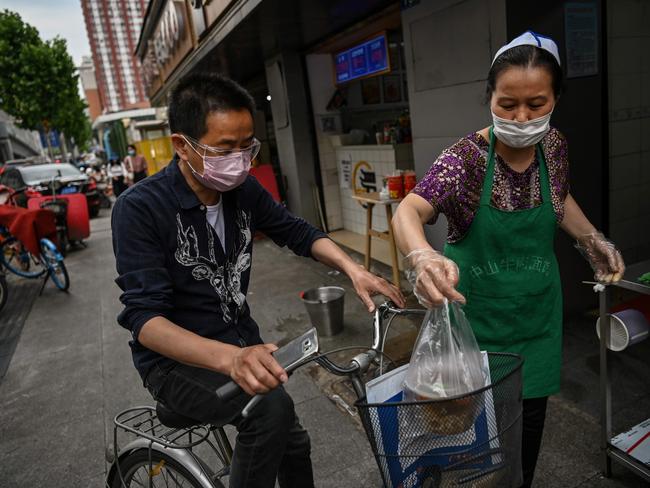
Jilin province, which borders North Korea, has suspended all public transport and imposed other restrictions as it battles a fresh outbreak. In neighbouring Heilongjiang province, which dealt with its own outbreak recently, the city of Harbin is quarantining anyone coming from Jilin for 14 days and banning them from hotels.
A major state-owned news website, Jiemian, said it had obtained an implementation plan for the city’s Wuchang district that said all residents should be tested by May 20, or in about a week’s time.
Wuhan was the area hit hardest by coronavirus in China. Of the 4633 reported deaths nationwide, 4512 were in Hubei province, including 3869 in Wuhan, the provincial capital.
China imposed a lengthy lockdown on most of Hubei in late January to stem the spread of the virus. People were forbidden from entering or leaving the province, public transport was suspended and residents were mostly restricted to their homes.
The lockdown was lifted outside Wuhan after two months, and in Wuhan itself on April 8, after two and a half months.
The new cases appear to have shocked city officials into action. They dismissed the Communist Party secretary of the neighbourhood where the cluster was found for poor management of the residential community, the official Xinhua News Agency said.
The order said the testing should focus on the elderly, densely populated areas and those with mobile populations, according to the media reports. One expert at Wuhan University told the Global Times newspaper that three million to five million residents have already been tested, which could leave up to eight million others for a citywide test.
BRITISH PM ACCUSED OF DUCKING VIRUS COMPARISONS
British Prime Minister Boris Johnson says the UK’s COVID-19 death toll is “deeply horrifying” after he was accused of avoiding comparisons with other European countries.
Opposition Labour leader Keir Starmer told parliament on Wednesday (local time) that he was “baffled” by the government’s withdrawal of daily graphs comparing Britain’s deaths and infections with those of other countries, saying the charts had been “used for seven weeks to reassure the public”.
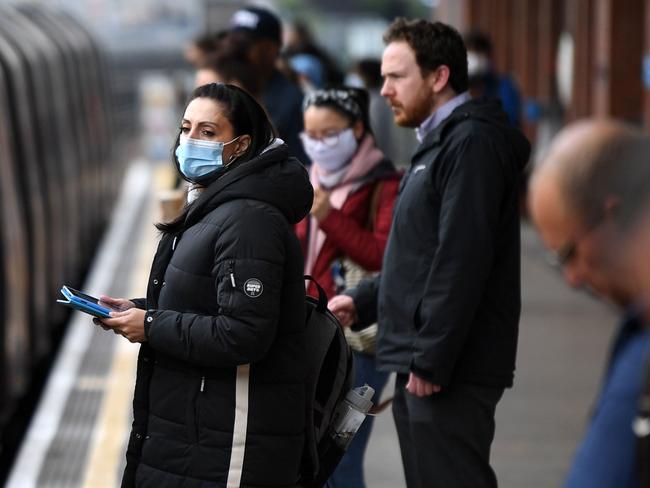
Mr Johnson did not explain why the graphs were no longer used, but he said scientific advisers believed international comparisons were “premature … (until) we have all the excess death totals for all the relevant countries”. “Now I am not going to try to pretend that the (UK) figures, when they are finally confirmed, are anything other than stark and deeply, deeply horrifying,” he said.
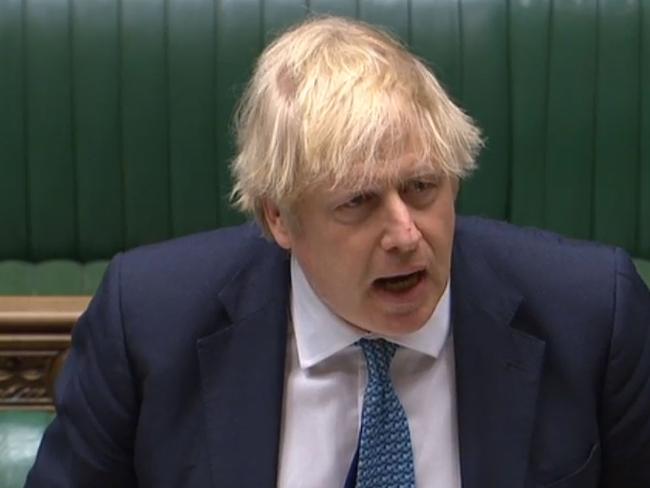
Pressed again on the dropping of daily comparisons, Mr Johnson said the government was “watching intently what is happening in other countries”. Signs of increasing infections in some countries that had already relaxed lockdowns gave “a very clear warning not to proceed too fast or too recklessly,” he added.
Britain has reported Europe’s highest official death toll.
A total of 33,186 people who tested positive for the coronavirus have died in the UK, a rise of 494 in a 24-hour period, the health ministry said on Wednesday. Including deaths due to suspected cases, the toll is more than 40,000.
Mr Johnson allowed a minor easing of the UK’s lockdown this week, encouraging people who are unable to work from home to resume their journeys to work from Wednesday.
Schools are scheduled to gradually reopen from June 1.
EUROPE STEPS UP REOPENING, UNVEILS PLANS
Europe moved ahead with its emergence from coronavirus lockdown on Wednesday and laid out plans for the northern hemisphere summer tourism.
Britain followed France, Italy and Spain in easing its lockdown but only in England, where people were given more freedom to leave their homes and return to their jobs if they cannot work remotely.
Austria said its borders with Germany would reopen from mid-June and Berlin said it aimed to end virus checks at its land borders in about a month.
Desperate to save millions of tourism jobs, the European Union set out plans for a phased restart of travel this summer, with EU border controls eventually lifted and measures to minimise the risks of infection, like wearing face masks on shared transport.
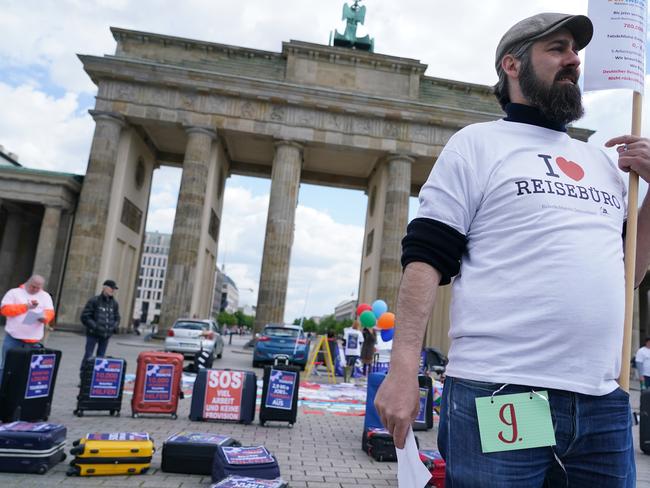
“Today’s guidance can be the chance of a better season for the many Europeans whose livelihood depends on tourism and, of course, for those who would like to travel this summer,” EU Commission executive vice president Margrethe Vestager told reporters.
In a sign that France might be ready for summer holidays, some beaches reopened on Wednesday — but only for swimming and fishing, while sunbathing remained prohibited.


